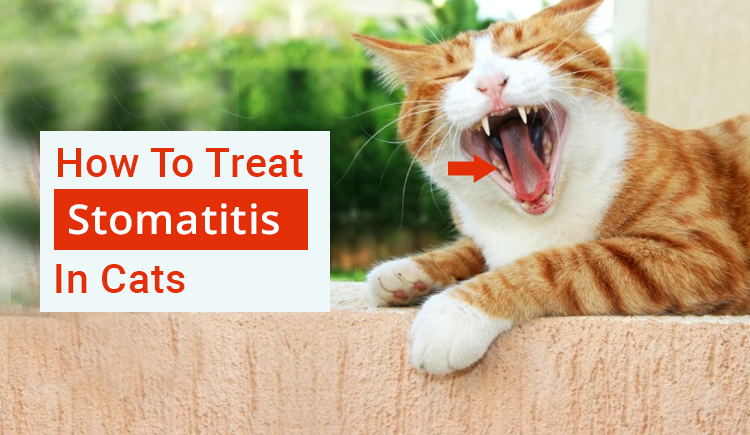Oral hygiene plays a vital role in order to maintain the overall health of either humans or pets. Just a bit of negligence in keeping up with your cat’s oral health can engender gnarly ramifications. Among the list of dental diseases in cats, a chronic condition occurs in cats called stomatitis. In addition, here is what we are gonna discuss is everything about stomatitis in cats that every pet parent should know.
What is Stomatitis in cats?
Stomatitis is a condition that results from severe inflammation of a cat’s mouth and gums. Stomatitis is an inflammation, which widely spreads in a cat’s mouth. Stoma refers opening and it means inflammation. The inflammation generally caused in the cat’s caudal i.e the back part of the oral cavity is referred as stomatitis or caudal oral stomatitis.
Gingivitis is the kind of inflammation that causes inflammation of the gums and is one of the initial signs of dental disease in cats. Stomatitis refers to a more generalized inflammation of the mucous membrane within the mouth. This condition causes the caudal region of the oral cavity to be red and ulcerated within the thickened tissue. Stomatitis can also engender the conditions such as lesion or painful ulcers to form in the cat’s mouth.
The severe pain in cat’s mouth due to inflammation can make it difficult for cat to eat properly. The pain they’re going through can also reflect in their behavior and negatively affect their quality of life.
Symptoms of Stomatitis in cats
Apart from the behavior change and severe pain in mouth, here are the other symptoms of stomatitis in cats.
• Drooling
• Decreased appetite
• Bad breath
• Red and inflamed gums
• Decreased grooming
• Weight loss
• Pawing at the face or mouth
• Growling at food
• Lethargy
What causes Stomatitis
The main reason that engenders stomatitis in cats is inflammation. Injuries and infectious diseases in cat’s mouth can also cause this disease. Moreover, inflammation can occur due to the overcrowded teeth in the mouth. Stomatitis in cats can also be caused because of several metabolic disorders including inflammation of blood vessel in the mouth, lymphonia or inadequate levels of the hormone parathyroid or due to the abnormal amount of waste products in the bloodstream. Generally, cats with stomatitis are carriers of the chronic form of disease.
How to diagnose Stomatitis
It can be difficult to examine a cat’s mouth with stomatitis because the cat may become reluctant to open his/her mouth. Going to a vet is the best option as he will examine cat’s mouth for decay, plaque, lesions, and other signs that can be a cause of inflammation. The veterinarian will recommend specific testing for underlying conditions such as FeLV and FIV. However, the diagnosis is commonly based on clinical signs and physical examination findings.
Ways to treat Stomatitis in cats
• It is about managing your cat’s pain due to stomatitis therefore; the vet will give your cat anti-inflammatory steroids and may prescribe antibiotics to treat the infection.
• Once your vet gives antibiotics to treat your cat at home, ensure to ask specific instructions for administering the treatment and strictly follow them.
• The vet may provide professional dental cleaning to the cat to give her/him a relief from bacteria and decaying. Moreover, you can also provide periodic cleaning to your cat. However, the best option is to brush your cat’s teeth regularly.





